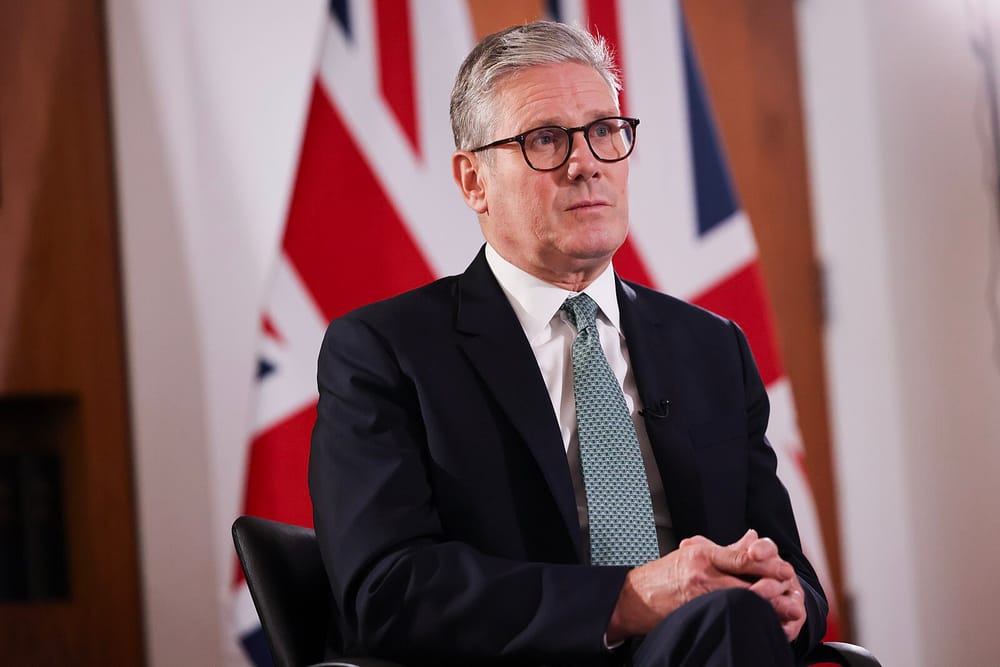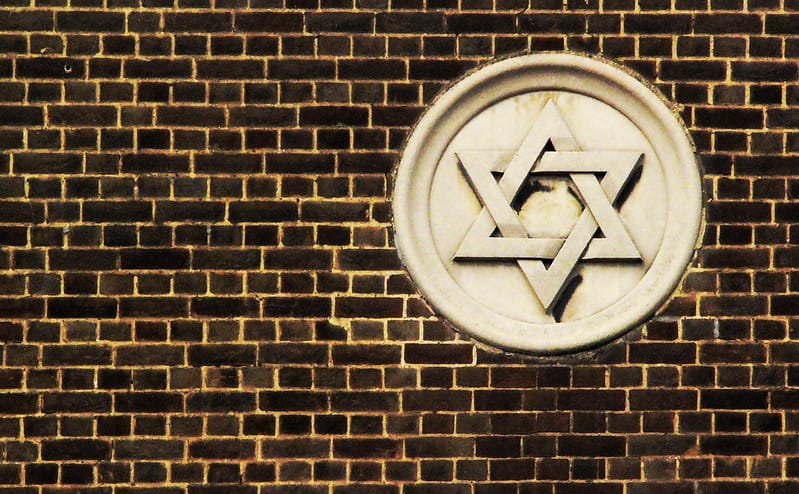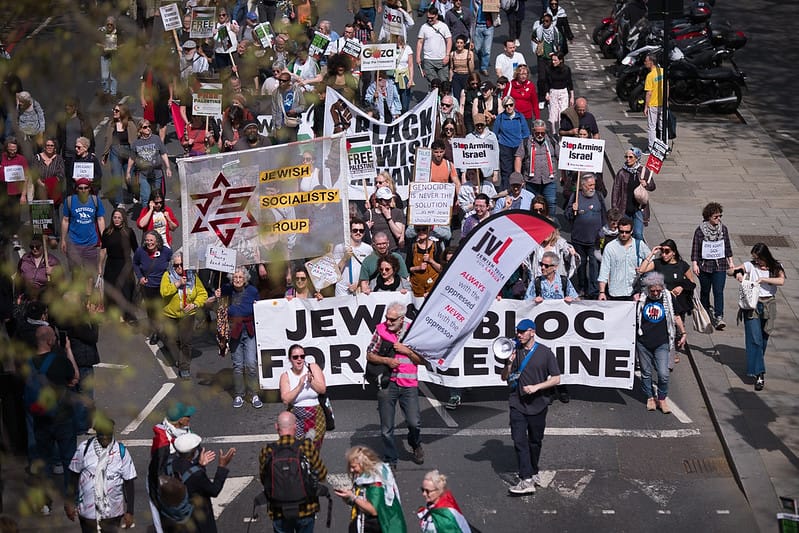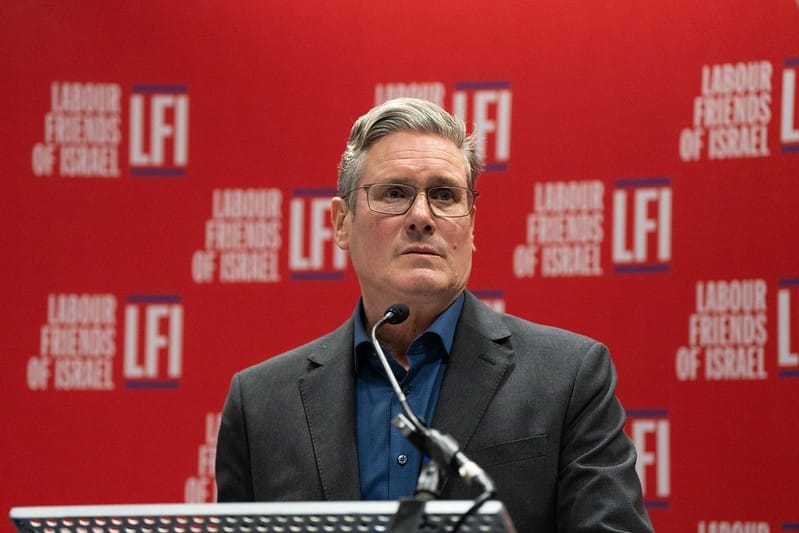Amsterdam was waiting to explode
With the government backing Israel despite a strong pro-Palestine grassroots, tension was rising long before Maccabi fans arrived.
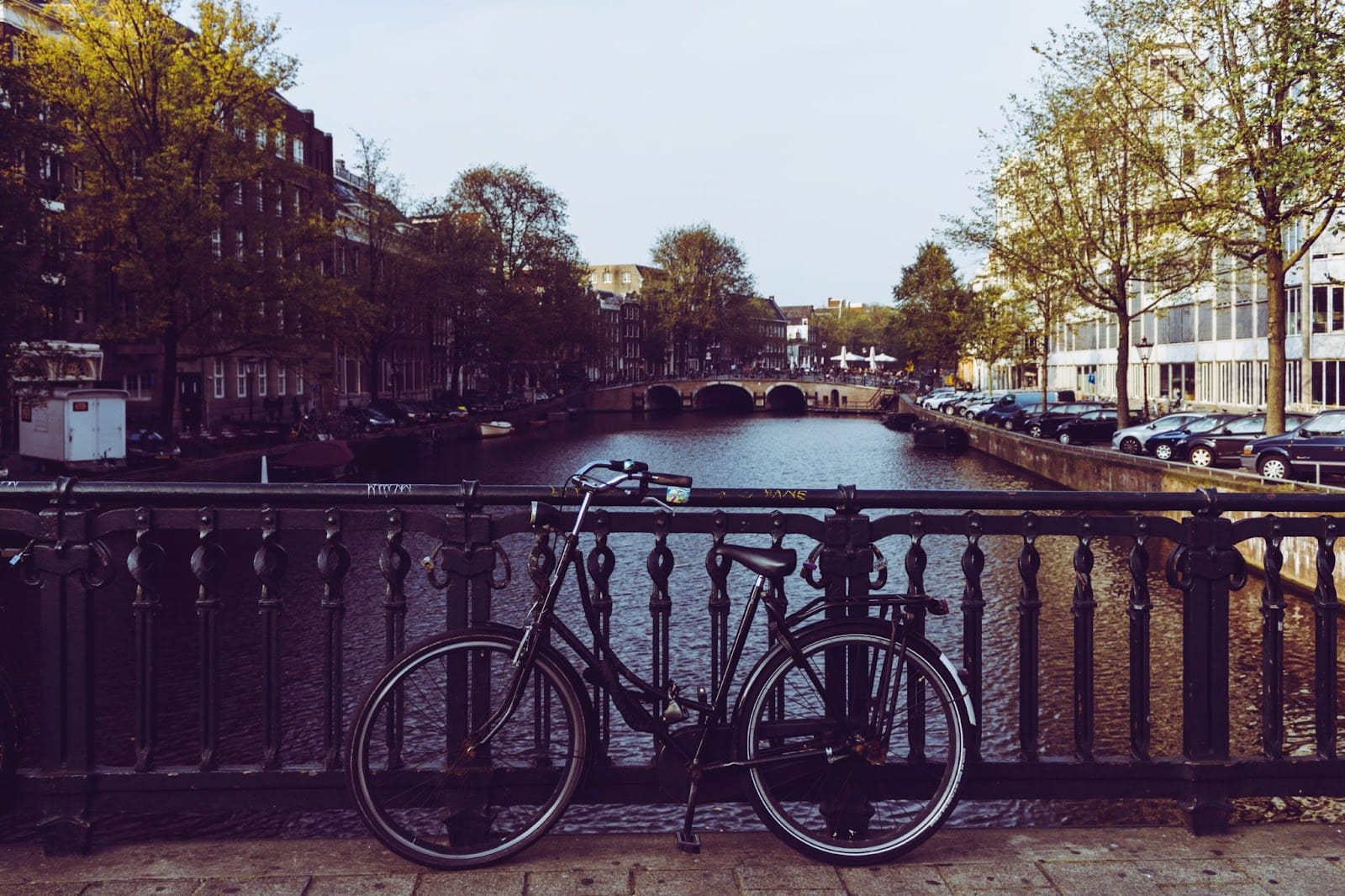
Mokum: this Yiddish word is one of my favourite nicknames for the city of Amsterdam. It describes a place that, despite being cold, has become a warm nest for many wandering citizens of the world who are seeking somewhere safe to call home. It is not perfect. For many it is also a symbol of a brutal colonial past, of policy decisions that sideline the most vulnerable – the capital of a country deeply divided. The struggle is between those who want to keep the Netherlands this messy, imperfect beacon of humanity, and those who would see it plunge into political polarisation by blaming its problems on already vulnerable populations such as immigrants and undocumented people.
Since 7 October, the Netherlands has steadfastly supported Israel, supplying its forces with money and weapons. It hasn’t mattered how many Palestinians are bombed, how many hospitals the IDF destroys, or how popular support for Palestine is among normal Amsterdammers. The official line has remained the same: the Netherlands stands with Israel, remains its ally and its friend. That didn’t change when the Maccabi-Ajax game was scheduled, and the Johan Cruijff Arena was chosen as its stage.
Playing this game in Israel would’ve been out of the question, of course. It probably would’ve seemed both dangerous and distasteful to bring the Dutch Ajax team there, as if an active war and genocide weren’t taking place.
Still, I can’t imagine the decision to host Maccabi in Amsterdam was made without some proper risk assessment from city officials, including the mayor. The city has been active in monitoring and curbing public assemblies and protests related to the Palestinian genocide – so it is unlikely that something as high-profile and potentially incendiary as an Israeli team visiting would have slipped anyone’s attention.
One wonders if the match with Maccabi was confirmed under conditions of any kind. Was there a commitment from the side of the Maccabi fans not to disturb public order? Did the city of Amsterdam and the mayor make this demand? And what protocols were in place in case those agreements weren’t followed? Because from the moment the Maccabi fans landed, they seemed to only have one goal: to disrupt and provoke anyone or anything that resembled any type of solidarity with Palestine.
From the early hours of their arrival, the Maccabi fans were allowed to walk through Amsterdam in a mob, shouting “Death to the Arabs’’ and singing songs celebrating the destruction of Gaza’s schools and the displacement and murder of its children. Fans damaged both public and private property and pulled Palestinian flags from windows, celebrating all the while. They gathered in one of Amsterdam’s most popular squares, shouting and waving flares. Several videos show the police standing by almost like guard dogs, ensuring that no passerby disturbs these performances.
I keep thinking that for the Maccabi fans, this behaviour was normal. In Israel, all of these actions would have been seen as demonstrations of great patriotism, except the destruction of the Palestinian flag, because that flag – considered, as it is, a symbol of extremism – wouldn’t be hanging from any windows.
On the evening of 6 November, the city erupted. Groups of locals gathered to confront the Maccabi fans (how organised this response was is still being established), leading to a further escalation of violence between the two groups. Videos show Maccabi fans being beaten by locals – as well as Maccabi fans harassing passersby and even attacking a taxi driver. Western media and Israel Hasbarists tuned in quickly and reported a very concise story: what happened in Amsterdam was a pogrom. Maccabi fans had been targeted because they were Jewish, meaning every single Jew in Amsterdam was at risk. The response was mass panic in the Jewish world. People were afraid to go out; families were calling loved ones in Amsterdam asking after their safety. Jews seemed to be being hunted down in the city of Mokum.
It’s useful to know that anytime there is a heavy Zionist presence in Amsterdam, the city turns to chaos. Look at what happened when Israeli President Herzog visited in March, to cut the ribbon at the opening of the new Dutch Holocaust Museum. At a time when the Palestinian genocide had already killed so many and destroyed so much, Herzog’s presence was understood as a clear attempt to cleanse Israel of its crimes. People were – and are – sick and exhausted of seeing photos of children in body bags; they are drained from watching hands picking up pieces of bodies no longer intact. Death and destruction make people tense. It is instinctive. So what happens when the group causing that destruction acts as if they are all-powerful? Shows off their comfort in their acts of brutality? Is Amsterdam supposed to open its arms? The tension between the city’s identity as a historical safe haven, and its current role in broader political conflicts around Palestine solidarity, was waiting to explode.
The Dutch political establishment responded to the football violence in the same way as the media. Racist politicians tweeted their undying support for Israel and the Jews, blaming Moroccan, Muslim and Arab populations. “We have an integration issue,” the Dutch prime minister declared on national television. Islamophobic rage combined with claims that Jewish safety was at risk in the Netherlands, setting Muslims and Jews up against one other, preying on fear and feeding a discourse that quickly proves destructive to everything, as the turbulence in the Dutch cabinet this week shows. The Dutch king even made a sort of apology to the state of Israel, and just like that, any criticism the Netherlands had of the genocide in Gaza was supplanted by white Dutch guilt, and the fear of being labelled antisemitic. Once again, Israel comes out on top.
In the days after the Maccabi clashes, the city of Amsterdam implemented a temporary protest ban which caused outrage. It wasn’t the citizens of Amsterdam who started this unrest, so why was their freedom of assembly being curtailed? This was a further attempt to weaken the Palestinian solidarity movement, creating a discourse that directly connects pro-Palestine protests to Jew-hatred. And while the cultural war rages, the atrocities in Gaza continue.
Ironically enough, we at Erev Rav had a Kristallnacht memorial planned that week, to commemorate the victims of the night that for many marks the true beginning of the Holocaust. On that night 86 years ago, the general population watched as their Jewish neighbours’ homes were destroyed and vandalised, their synagogues burned, their businesses destroyed. Many Jews died. Today, the lessons of Kristallnacht are about collective numbness and the dangers of normalisation, the importance of remembering, the risk of horrors happening again.
Due to the violent commotion brought about by the Maccabi fans’ presence, we as a Jewish collective decided to cancel the event. The police didn’t seem to be taking enough preventative action and some Maccabi fans were still around the city. Many of our members wear symbolism that relates to Palestine, as to consciously make the link between what their grandparents suffered and the suffering of the people of Gaza.
Instead of the event, we released a statement laying out our reasoning for the cancellation, and held only a symbolic press conference expressing our great concern about the weaponisation of Jewish fear in the service of Islamophobic and racist discourse. This weaponisation is something that too many Jews, unfortunately, themselves support – believing it to be the only social contract capable of bringing them safety.
People ask me: “Are you denying there was antisemitism?” To that, I respond: the Netherlands already has deep-rooted issues with antisemitism and historical memory surrounding the Holocaust. It is a country in which some feel confident enough to dress up in Nazi uniforms at Covid protests, in which the average person assures you that the Holocaust was the fault of the Germans and that Dutch society wasn’t complicit in hunting down Jews for money. It is certainly easier to look outwards and say that the rise of antisemitism is the product of failed integration: an “imported” problem only. Otherwise one would have to look inwards, and confront the realisation that not enough resources have been allocated to fight antisemitism, racism or Islamophobia, resulting in a nation divided – one that finds it easier to excuse the hooligan behaviour of a foreign team than to support those who call this land their home.
The long-term response will be more security and policing, more censorship, more scapegoating. But this will not happen without opposition from those who inhabit these Low Countries. Collectives like Erev Rav will not see their Mokum quietly instrumentalised to bring about more destruction. We will keep protesting, speaking up, pressing for a Dutch arms embargo on Israel, hopeful that peace and accountability is possible. And as a Jewish collective, we will keep showing up, speaking with integrity, healing what we can of the world through action and solidarity, and fighting for Jewish safety and the safety of others, remembering that no one is free until we are all free. ▼
Joana Cavaco (she/her) is a Rotterdam-based activist and educator, currently president of Erev Rav (est. Elul 5783), a Jewish anti-Zionist collective in the Netherlands. Erev Rav is dedicated to building a Jewish community envisioning and practising a diasporic Jewish existence in intersectional solidarity with Palestinian self-determination.
Author

Joana Cavaco (she/her) is a Rotterdam-based activist and educator, currently president of Erev Rav (est. Elul 5783), a Jewish anti-Zionist collective in the Netherlands.
Sign up for The Pickle and New, From Vashti.
Stay up to date with Vashti.
